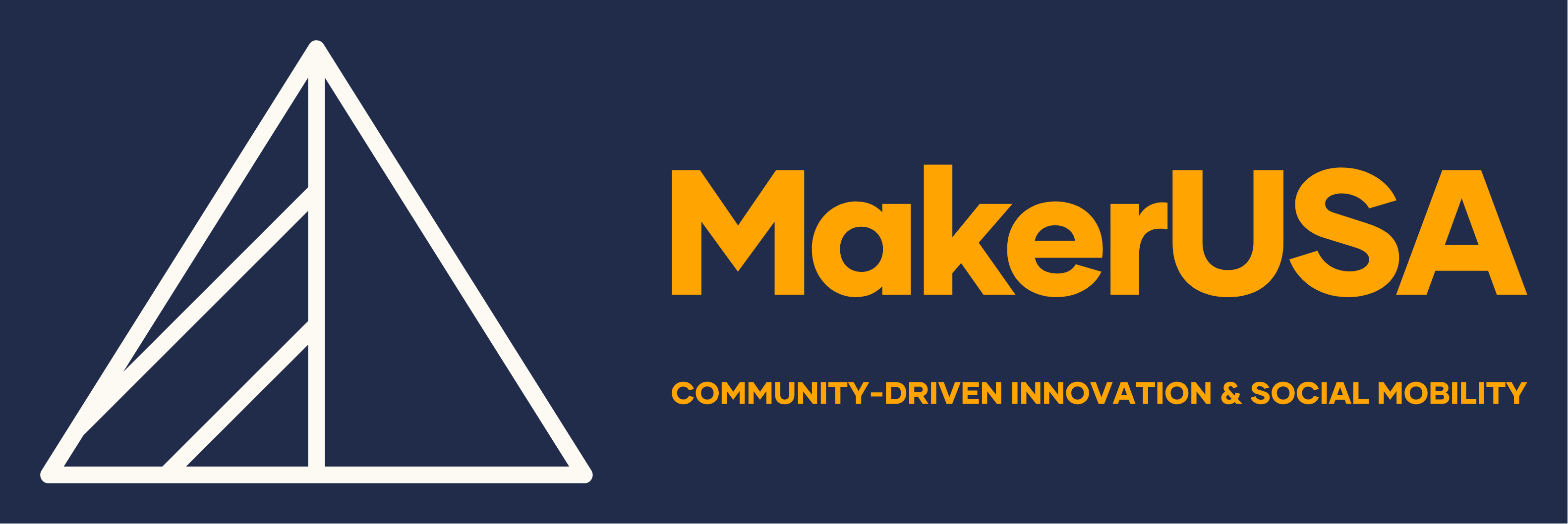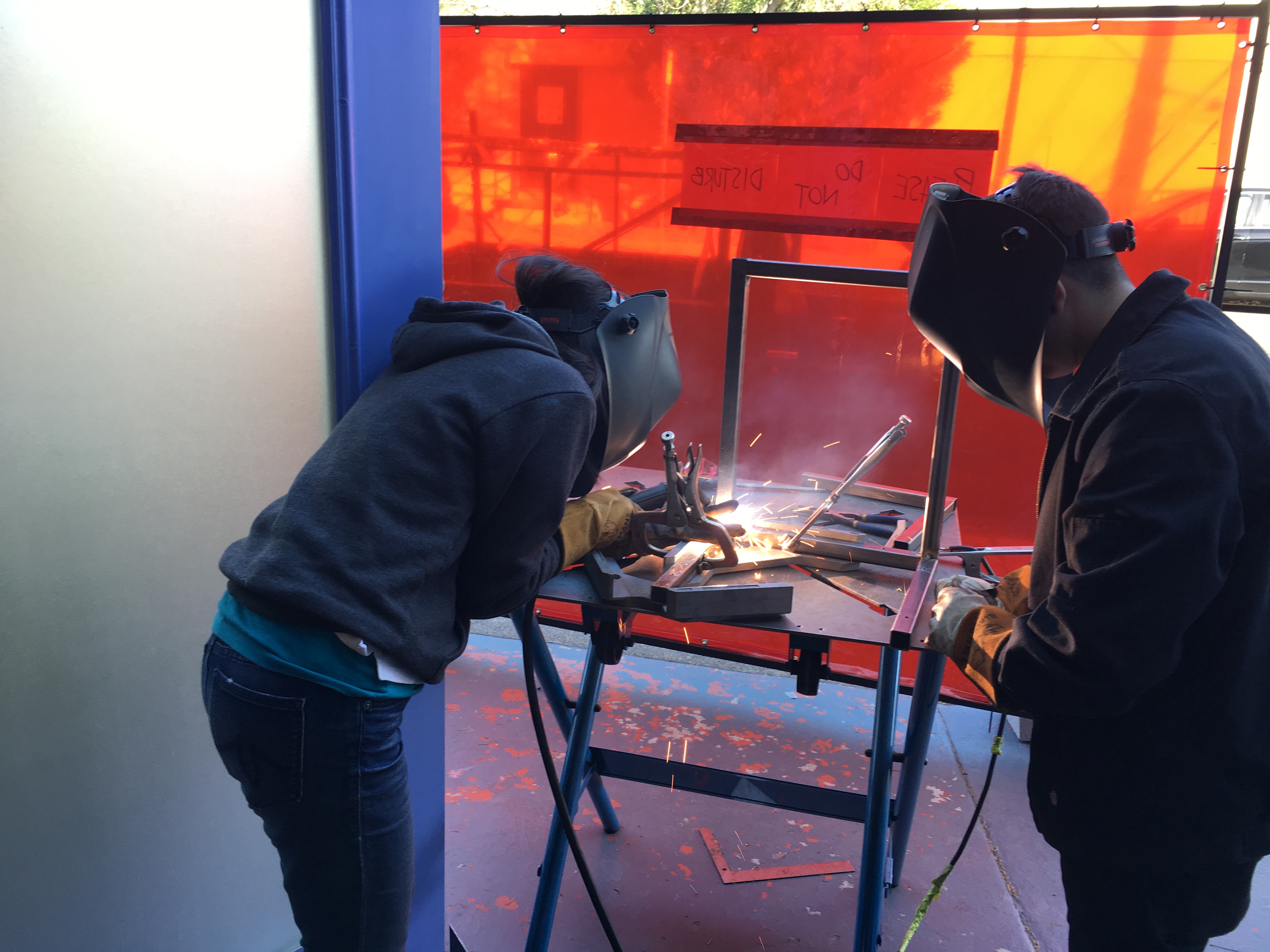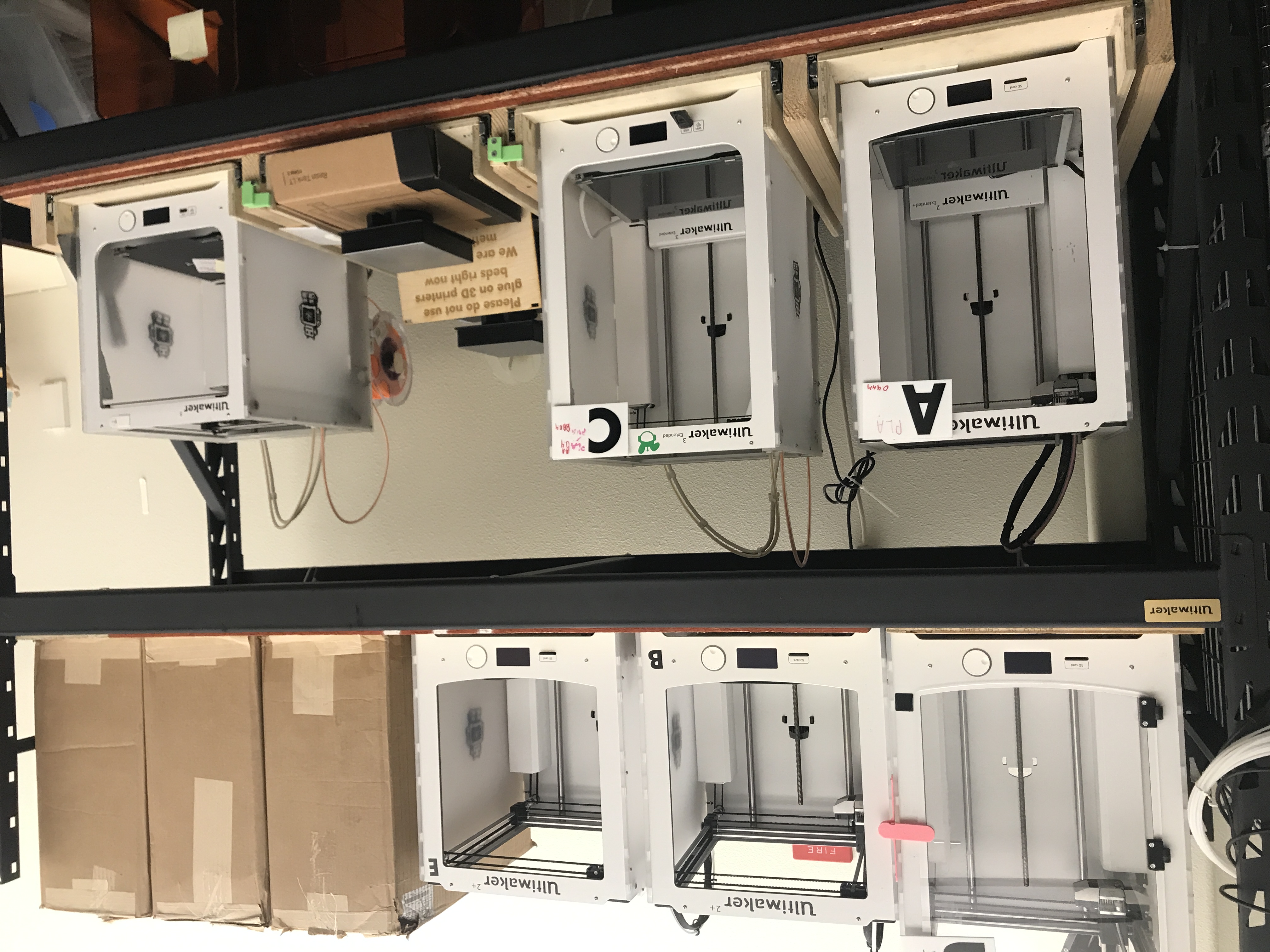MakerUSA
Community-Driven Innovation & Social Mobility

 NACCE is excited to enable the launch of MakerUSA! MakerUSA is being incubated within NACCE and will be publicly announced at our annual make/SHIFT conference April 20-22, 2022 in San Diego. Register today!
NACCE is excited to enable the launch of MakerUSA! MakerUSA is being incubated within NACCE and will be publicly announced at our annual make/SHIFT conference April 20-22, 2022 in San Diego. Register today!
MakerUSA will bring unique talent and capacity to community and technical colleges, as well as rural and minority-serving colleges and universities. The model will place full-time, trained staff at partner “Innovation Sites” to help build student pathways into careers in making and entrepreneurship. The program also aims to partner with professional and community makerspaces, public housing authorities, local entrepreneurship and manufacturing ecosystems as well as state and local public offices. MakerUSA’s goal is to develop the local talent that can sustainably support community-driven innovation and social mobility.
 MakerUSA is actively inviting Letters of Interest (LOI) from interested institutions. The LOI is a simple, non-binding submission that is designed to identify areas of alignment between your goals and possible support from MakerUSA. LOI submissions that align with the mission of MakerUSA will be prioritized for Program Manager placement within the 2022-23 pilots as well as the 2023+ footprint. We encourage you to learn more and consider submitting an LOI today.
MakerUSA is actively inviting Letters of Interest (LOI) from interested institutions. The LOI is a simple, non-binding submission that is designed to identify areas of alignment between your goals and possible support from MakerUSA. LOI submissions that align with the mission of MakerUSA will be prioritized for Program Manager placement within the 2022-23 pilots as well as the 2023+ footprint. We encourage you to learn more and consider submitting an LOI today.
MakerUSA will train and place Program Managers (PMs) at partner Innovation Sites. PMs will be full-time MakerUSA staff on 12-18 month, renewable contracts. The model is designed to support multi-year retention of PMs, and thereby create a long-term career pathway. Program Managers will be managed by the Innovation Sites, while receiving ongoing training, professional development, and strategy support from MakerUSA. Program Managers may be individuals who are recent graduates, mid-career professionals or individuals transitioning into another career. The PM role is designed to be flexible based on the needs of the Innovation Site and community.
There will be three types of Program Managers. Each type will receive unique training and support from experts in the fields of maker-centered learning, entrepreneurship, ecosystem development and project-management. PMs will also continually learn and share with their peers through a national community of practice.
Higher Ed Maker Program Builder
PMs will focus on expanding and/or creating new higher ed-based makerspaces and other maker programming. This could include:
- Supporting efforts to make existing makerspaces more inclusive and connected to the community, including through K-12 school partnerships
- Designing new makerspaces and/or other making programming, including student maker challenges
- Connecting local businesses in new ways to a higher ed-based makerspace
Student Career Pathway Builder
PMs will focus on supporting individual college student makers on their workforce entry and/or entrepreneurship pathway. This could include:
- Providing guidance to student makers on resources for additional entrepreneurship training and support, including on new business formation, incubator and accelerator programs, intellectual property, college courses, and mentorship programs
- Partnering with local employers to create stronger pathways for student makers to local industry, including through apprenticeship programs
- Supporting student entrepreneurs in the development and growth of their businesses locally, including navigating from prototype to small-batch to large volume manufacturing
Innovation Ecosystem Builder
PMs will focus on strengthening partnerships across a community’s maker, higher ed, entrepreneurship, and/or manufacturing ecosystems. This could include:
- Managing a working group among organizations that comprise maker and entrepreneurship ecosystems to better connect resources and career pathways
- Increasing the capacity of professional and/or community makerspaces to support their makers on entrepreneurship pathways, including through new partnership formation
- Expanding small batch and advanced manufacturing ecosystems’ networks
- Building the capacity of public offices to support their local making community
Through the LOI, interested organizations can select the Program Manager type(s) that could best align with their goals. MakerUSA staff are also available to answer any questions, discuss your institution’s unique goals and recommend a Program Manager structure that can best support your community prior to LOI submission.
Submit a Letter of Interest
MakerUSA has opened an invite-only LOI submission process. Please see here. The LOI will become fully public in conjunction with the initiative’s launch at make/SHIFT April 20-22, 2022.
LOI submissions, with the approval of the submitter, may also be highlighted as part of the national communications during the make/SHIFT conference.
We strongly encourage considering an LOI submission. This brief (approximately 10 min to complete) submission is the first step in pilot implementation selection. LOI submissions that align with the mission of MakerUSA will be prioritized in the scaling of the model and will guide geographic selection as well as broader program strategy.
Please reach out directly to MakerUSA leadership to further discuss the model and the LOI as you consider possible areas of alignment with your goals.
Financial Mechanisms
The 2022-23 pilot model establishes a $6,000 cost-share for Innovation Sites, with a sliding scale to ensure equitable access. The combined starting compensation package of a first-year Program Manager will be between ~$40,000-50,000, in addition to training, networking and professional development benefits. PM compensation will increase by ~$5,000 after each contract year, assuming the Innovation Site, MakerUSA and the PM agree to continue the contract and the corresponding increase in financial contributions is secured. MakerUSA will work individually with Innovation Sites to determine the Program Manager salary that is competitive and appropriate for the scoped role. The long-term financial model will be informed by the LOI process and pilot implementation.
The combination of Cost-Share + Sponsorship will cover the direct salary of the Program Manager. MakerUSA and its national sponsors will cover the costs of all other PM expenses, including benefits and training, in addition to its national operations. The shared commitment of the three primary financial contributors - Innovation Site, Sponsor, MakerUSA - creates the basis for deep partnership and a flywheel for long-term sustainability and scale.
2022-23 Implementation Timeline
MakerUSA is aiming for the first cohort of Program Managers to begin with pilot Innovation Sites in late 2022. The timing of placements will be driven by sponsorship support for each individual PM role.
MakerUSA believes that the most powerful way to address our most pressing societal challenges is through the support of community-led innovation and equitable entrepreneurship. Maker-centered learning is an essential input to these outcomes. Many colleges and universities are investing in maker-centered learning as a vehicle to drive innovation and student career pathways. In 2015, there were approximately 150 makerspaces on college campuses. Today there are more than 500. Yet, there is often limited human capacity to support these spaces and even more limited talent to support the individual student makers on their own unique career pathways.
A community college may have a state-of-the-art new makerspace, but limited capacity to engage high-school students in the facility, and thereby create stronger enrollment pathways to their institution. A local makerspace may have engaged makers creating new designs, but limited capacity to guide those makers on resources and supports to turn their concepts into new businesses.
Meanwhile, research reveals that the most important factor in determining whether a young person becomes an inventor is not skill or interest. It is the wealth of their parents, followed by race and gender. Economists estimate that if women, minorities, and children from low-income families became inventors at the same rate as men from high-income families, innovation in the United States would quadruple.1 Systemic barriers driven by income, race, gender and geography continue to impede social mobility and our economic competitiveness.
At MakerUSA, we know there is unique human talent needed to support existing community assets and programs that are striving to advance local making. We believe we need to strengthen maker ecosystems in ways that support local collaboration and equitable access. And, critically, we need to overlap burgeoning maker ecosystems with entrepreneurship and manufacturing ecosystems and networks, thereby creating equitable, innovation ecosystems.
1. Chetty et all (2018). Who Becomes an Inventor in America?
http://www.equality-of-opportunity.org/assets/documents/inventors_paper.pdf
Innovation in the U.S. could quadruple if women, minorities, and children from low-income families became inventors at the same rate as men from high-income families. Children born into the richest 1 percent of society are 10 times more likely to be inventors than those born into the bottom 50 percent. White children are 3x more likely to become inventors than black children.
MakerUSA believes that communities best understand the challenges they face and should lead in developing the solutions. MakerUSA will work in partnership with local stakeholders to strengthen existing assets and institutions. We will do so in ways that cultivate and retain local talent and culture.
MakerUSA will support underserved students (K-career) on diverse “making pathways” from advanced manufacturing, biotechnology and alternative energy, to the skilled trades, coding and entrepreneurship. MakerUSA will focus on the regions outside our major economic hubs and prioritize communities that have been most left out by unequal wealth-creation and systemic barriers to access and opportunity.
MakerUSA is being made possible by a leading cohort of founding sponsors who will be announced as part of the make/SHIFT launch. MakerUSA is actively seeking additional funding partners to bring this vision to life. MakerUSA is made possible by the generous support of Arconic Foundation and Genentech.
 |
 |
